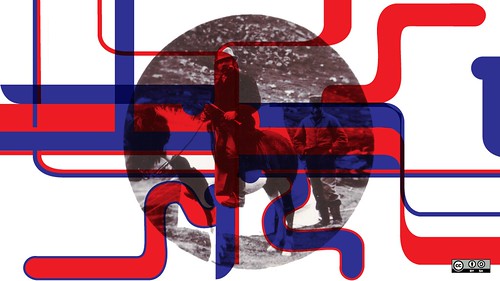Note: it’s been pointed out in the comments (and elsewhere) that the source article is full of inaccuracies. Here’s the rebuttal. Nonetheless, I think there’s strong interest in a new kind of democracy that takes its inspiration from the hierarchy flattening we’ve seen on the web. It’s an issue I’m still keen to explore.
My original post follows.
I’m intrigued by this opinion piece by the The South African Civil Society Information Service. It’s certainly true that Iceland hasn’t been making headline news despite its role in the current economic downturn. The governmental change they’ve been experiencing there has been off the radar for a lot of people, myself included – but it’s incredible, and deserves much more attention.
Background: Iceland moves away from the global financial system
Following deregulation of its banking system, Iceland’s foreign debt was around 900% of its Gross National Product, and when the financial crisis in 2008 killed off its three main banks, the IMF and the EU offered to take on the debt.
Elections were brought forward to April 2009, resulting in a left-wing coalition which condemned the neoliberal economic system, but immediately gave in to its demands that Iceland pay off a total of three and a half million Euros. This required each Icelandic citizen to pay 100 Euros a month (or about $130) for fifteen years, at 5.5% interest, to pay off a debt incurred by private parties vis a vis other private parties. It was the straw that broke the reindeer’s back.
The Icelandic Head of State refused to ratify this into law, and instead held a referendum, in which 93% of the population voted against repaying the debt.
A new constitution for the people, by the people, written in full view of the people
Defiant stuff already, but the best was yet to come: they also decided to write a new constitution, in a way that had never before been possible:
To write the new constitution, the people of Iceland elected twenty-five citizens from among 522 adults not belonging to any political party but recommended by at least thirty citizens. This document was not the work of a handful of politicians, but was written on the internet. The constituent’s meetings are streamed on-line, and citizens can send their comments and suggestions, witnessing the document as it takes shape. The constitution that eventually emerges from this

Leave a Reply